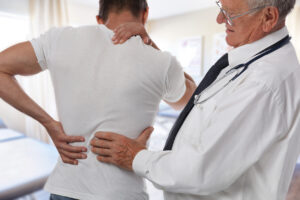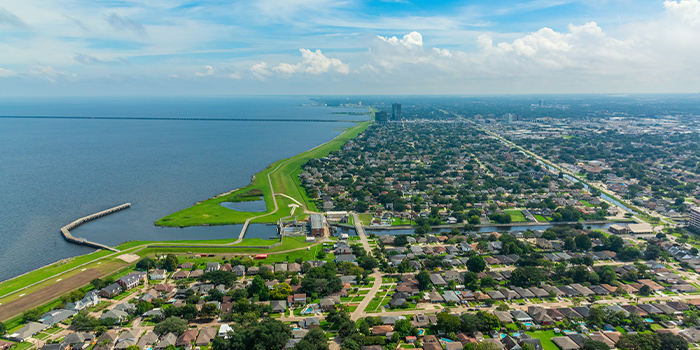
In a personal injury case, causation is a fundamental element that must be proven to secure compensation. Whether you’ve been injured in a car accident, a slip and fall, or due to medical malpractice, proving causation is a necessity. It establishes that the defendant’s actions directly caused your injuries.
Your personal injury claim cannot succeed without proving causation, even if the defendant’s conduct was negligent. With the help of an experienced lawyer, you can understand the complexities of causation and how to navigate the legal process in Louisiana.
This article will explain what causation is, why it matters in a personal injury case, and how you can prove causation to maximize your chances of receiving fair compensation.
What Is Causation in a Personal Injury Case?

Causation refers to the connection between the defendant’s actions and the plaintiff’s injuries. To win a personal injury case in Louisiana, you must prove that the defendant’s negligence directly caused your harm.
Causation is generally broken down into two components: actual causation and proximate causation.
Actual Causation (Cause in Fact)
This is often referred to as the “but for” test. In simple terms, actual causation asks, “But for the defendant’s actions, would the injury have occurred?” If the answer is no, then the defendant’s actions were a direct cause of the injury.
For example, if a driver runs a red light and hits another car, the actual causation is that the driver’s running the red light directly caused the accident.
Proximate Causation (Legal Causation)
Proximate causation is concerned with whether the defendant’s actions were closely enough related to the injury. Even if the defendant’s actions caused the injury in a technical sense, if the injury was too remote or unforeseeable, the court may not find proximate causation.
For example, if a driver runs a red light and causes an accident, and someone a mile away trips and falls because they were distracted by the accident, it would be too far removed to be considered proximate causation.
In Louisiana, both components of causation must be proven to establish that the defendant’s actions were the legal cause of your injuries.
Why Causation Matters in Personal Injury Cases
Causation is a central issue in personal injury claims. It links the defendant’s conduct to the harm you’ve suffered. Without proving causation, your claim cannot succeed. Even if you can show that the defendant acted negligently, you must also demonstrate that this negligence directly led to your injuries.
Proving causation provides a direct path to establishing liability, which you’ll need to prove to recover economic and non-economic damages.
How to Prove Causation in a Personal Injury Case in Louisiana
Proving causation requires solid evidence. It also requires a clear connection between the defendant’s actions and your injuries.
Here are some steps to prove causation in a personal injury case in Louisiana:
- Gather medical evidence. Medical documentation is one of the most critical pieces of evidence in proving causation. Your doctors must confirm that your injuries were caused by the accident or the incident at issue in your case. This could include medical records, treatment plans, diagnostic tests, and expert opinions from medical professionals.
- Use the “but for” test. You’ll need to show that, but for the defendant’s actions, you wouldn’t have been injured. This can be proven through witness testimony, surveillance footage, or other evidence that clearly shows the defendant’s role in the injury.
- Expert testimony. In complex cases, such as medical malpractice or severe car accidents, expert witnesses can be crucial in proving causation. Medical professionals, accident reconstructionists, or safety experts may be able to testify about how the defendant’s actions directly led to the harm you suffered.
- Establish the chain of events. If the injury occurred as part of a chain of events, it’s important to prove how each event in the chain contributed to your harm. Clear documentation of each event, including any damages to vehicles, injuries to individuals, or expert opinions, can establish this chain.
- Eyewitness testimony. Witnesses who were present at the scene of the accident can provide valuable testimony. They can confirm the sequence of events, the defendant’s behavior, and how the behavior caused your injuries.
- Demonstrating foreseeability. In cases of proximate causation, you’ll need to show that your injuries were a foreseeable result of the defendant’s actions. For instance, it’s foreseeable that running a red light can cause a car crash. It may not be foreseeable that a crash will cause an unrelated slip and fall a mile away.
To prove causation, you will need to establish your claim with solid evidence. With the help of an attorney, you can demonstrate that the defendant’s actions were the actual cause and that your harm was foreseeable.
Contact Santana & Blanchard Personal Injury Lawyers for Help with Causation Issues Today
If you’ve been injured in an accident in Louisiana and need help proving causation, contact Santana & Blanchard Personal Injury Lawyers. We offer a free consultation to discuss your case and explain your legal options. Our experienced attorneys will review your case, explain your best course of action, and help you navigate the legal process with confidence. An experienced Metairie personal injury lawyer can make all the difference for your case.
Contact us today to schedule your free, no-risk consultation at (504) 323-6000. Let us help you secure the compensation you deserve for your injuries and hold the wrongdoer accountable.
